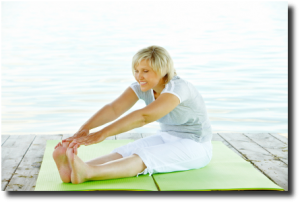Fitness facts for cancer survivors
 Staying active can help reduce cancer-related fatigue and other side effects like constipation, nausea or pain during and after cancer treatments. Physical activity can also promote cancer survivorship and improved quality of life.
Staying active can help reduce cancer-related fatigue and other side effects like constipation, nausea or pain during and after cancer treatments. Physical activity can also promote cancer survivorship and improved quality of life.
In the past, patients were told to rest and limit their exercise. New research demonstrates there are many benefits of maintaining or adopting a physically active lifestyle during and after treatment for your mind and body. In fact, walking for three to five hours a week at a moderate pace has been shown to reduce recurrence risk by up to 40 percent in women with breast cancer. It has also become well established that exercise is not only helpful but can be very safe for patients.
Exercise can help patients at risk for unwanted weight loss maintain their muscle mass and help those at risk for unwanted weight gain manage their weight. Moderate intensity exercise is seen as the most effective and the safest. Intense exercise or “over training” has been shown to actually suppress the immune system. Start slow and build up your intensity or duration of exercise gradually over time. Be sure to allow yourself days off when you need it.
Cancer treatment centers are offering many classes and opportunities for cancer patients and survivors to be active, such as yoga, pilates, Qi Gong, aquatics, strength training, cardiovascular and personal training sessions. Community organizations like the YMCA also offer classes specifically designed for survivors that are taught by certified experts. But you don’t have to sign up for a class to get moving or reap the benefits of exercise!
Check out these simple everyday tips to boost your physical activity:
- Take public transport
- Get off the bus or train one stop early to walk
- Take the stairs one or more flights instead of the lift
- Get up from your desk and move for 5 minutes every hour
- Sit at your desk on an exercise ball
- Carry a basket of shopping instead of using a trolley
- Do calf raises or bicep curls with 1 pound of canned, boxed or bottled goods while waiting in a queue at the shops
- Walk your dog
- Play with your children or grandchildren at the park
- Do light flexibility or strength exercises at home before getting into the shower each day
Before starting any exercise programme, it’s important to take the necessary precautions. Speak with your doctor before starting an exercise programme.
Source: http://www.curetoday.com/index.cfm/fuseaction/blog.showIndex/guest/Exercise
